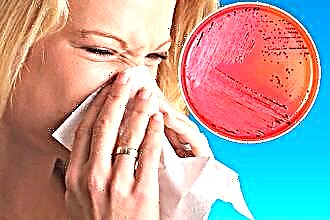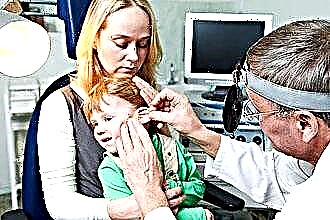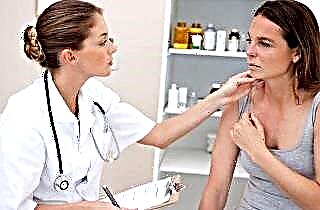High blood pressure is the overexposure of blood flow to the walls of blood vessels. Unfortunately, it is not always possible to notice it in time. With a prolonged and regular increase in pressure, a person can develop conditions that are life-threatening. A large number of deaths occur precisely due to hypertension - a disease accompanied by a constant increase in blood pressure.
Dangerous symptoms
First aid for high blood pressure must be provided competently and immediately. If there is no one around at this moment, the person who has an attack of hypertension should know how to behave in a similar situation, while waiting for the medical team.
Often, the patient simply does not notice high blood pressure. He may not feel any signs of poor health or, unknowingly, not associate them with hypertension. Especially such a "negligent" attitude towards oneself is typical for people who first encountered such a phenomenon. An asymptomatic course is usually characterized by the initial stage of the development of the disease. You can only notice an increase in pressure by measuring it. This can be done using a tonometer.
If the device shows numbers that exceed the permissible values of normal pressure (139/90), then the body has already sent the first alarm signal. Of course, this can be a one-time and insignificant rise, which sometimes happens to any person, he does not require medical attention. You can check this by taking regular pressure measurements over a period of time. Having noted the episodes of periodic deviations of its indicators from the norm, it is necessary to seriously realize and accept the fact that one has hypertension.
In order not to miss the incipient hypertension, you cannot ignore the following symptoms:
- headaches, which can be felt in any area, are strong and moderate, prolonged and paroxysmal;
- often pain in the head area is combined with a feeling of nausea, vomiting is possible;
- the patient feels a hum in the ears, heaviness in the head, pulsation of blood in the temples;
- dizzy, the ground “leaves from under your feet”, darkens in your eyes, especially if you suddenly get up from a sitting or lying position;
- the heart aches and hurts, there is a feeling of heat and heaviness in the chest, the pain can be squeezing;
- the rhythm of the heartbeat is out of order or becomes more frequent;
- it becomes difficult to breathe, as if there is not enough air;
- fever or chills may appear, trembling in the limbs, hands and feet become numb and cold;
- deterioration of vision, flickering black spots appear in front of the eyes, it is difficult to focus the gaze;
- pain in the eyeballs appears;
- possible nosebleeds;
- sleep problems;
- nervous excitement, manifested by irritation;
- apathy, loss of strength, lethargy, drowsiness.
Usually, you can cope with the manifestation of hypertension on your own. Experienced hypertensive patients have a whole arsenal of proven medicines for these cases.
But there are times when even they need an ambulance with high pressure.
If the indicators have increased to significant limits (30% higher than the usual level), you need to call an ambulance. For each person, his own indicator will be the norm; it may differ significantly from generally accepted standards (120/80).
One will feel comfortable with a pressure of 135/85, the other lives with a reduced pressure of 90/60 all his life. And for people with chronic hypertension, a slight increase in the tonometer readings is practically the norm, the vessels have already adapted to this state. Therefore, the concept of "high pressure" is rather relative. A hypotonic person will feel very bad already with readings of 140/90, and an experienced hypertensive will call an ambulance if the pressure "jumps" to a level higher than 180/110.
The reason for providing first aid for hypertension should be the patient's condition, and not the testimony of the tonometer: if a person feels bad, there is no one nearby, and he himself is not able to help himself, then an urgent need to call a doctor.
Feeling unwell with pressure can be expressed by increased headache, vomiting, weakness bordering on fainting, the appearance of a veil before the eyes, severe pain in the heart. Symptoms that are typical with hypertension become pronounced, the person has a fear of death, it is difficult for him to breathe, he becomes covered with red spots.
An emergency call for an ambulance team will be needed if the medications and other measures taken to reduce pressure do not help, and also if the person has experienced an attack of hypertension for the first time.
A very dangerous phenomenon is a sudden sharp jump in indicators to high limits. This condition is called a hypertensive crisis. In this case, first aid with high pressure should be urgently provided. What symptoms will indicate danger:
- intolerable headache, weakness, nausea;
- hands, legs, face become numb, and often such symptoms are characteristic of one of the parts of the body: left or right;
- loss of vision.
These are signs of an incipient stroke, the outcome of which can be paralysis, coma, death.
But the symptoms that precede the development of a heart attack:
- burning sensation in the chest, not always in the region of the heart;
- pain that goes to the arm, shoulder or both arms;
- sometimes soreness is felt in the jaw, teeth, in the area of the shoulder blades or back;
- it becomes difficult to breathe;
- you may experience a feeling of a full stomach, heartburn, your stomach begins to ache;
- interruptions in the rhythm of the heart.
This is how acute heart failure manifests itself, which requires immediate medical attention:
- blue tips of the toes and hands, blue in the lips;
- severe shortness of breath;
- arrhythmia;
- the appearance of pink foam at the mouth;
- coughing;
- heartache.
With the development of complications of arterial hypertension, assistance is provided in different directions: lowering pressure and eliminating the symptoms of a concomitant complication. In this case, drugs will be needed to maintain the heart muscle or relieve cerebral edema.
Pills and medications
A quick way to help a person is to give them the right pills. When deciding on the choice of drugs that help with hypertension, one important rule must be remembered: a sharp drop in blood pressure can only worsen the situation. It must be reduced gradually. It is good to choose just such drugs, the effect of which appears after a short time after taking, but the blood pressure will decrease smoothly, without jerking.
For hypertension, the following groups of drugs are used:
- Blockers of calcium ions, which are deposited on the walls of blood vessels, increasing their volume and causing an increase in pressure.
- ACE inhibitors (angiotensin converting enzymes) block the production of an enzyme, which, by causing certain transformations of substances in the body, increases blood pressure in humans.
- Diuretics are drugs that remove fluid from the body. They normalize kidney function, eliminate edema, and reduce blood pressure.
All three groups of drugs complement each other well and are more effective when used together. They are represented by such drugs:
- Amlodipine, Felodipine.
- Captopril, Enalapril, Fozinopril.
- Hydrochlorothiazide, Indapamide.

"Amlodipine" has a soft, smooth action. Vascular resistance decreases slowly, this helps to avoid increased heartbeat. The drug is also used for ischemic heart disease.Cannot be used in case of low blood pressure, cardiogenic shock, myocardial infarction. The use of these tablets can cause side effects: pain in the heart or head, increased appetite, frequent urination.
"Captopril" can be used as first aid to a person with high blood pressure, as well as for the systemic treatment of hypertension. Effectively lowers blood pressure to acceptable limits, acts an hour or an hour and a half after ingestion. The drug does not contribute to fluid retention in the body, so it can be drunk without diuretics. It facilitates the work of the heart, improves the functioning of the kidneys.
"Hydrochlorothiazide" removes fluid, relieves puffiness with increased pressure, heart failure, renal failure. Possible side effects: nausea, diarrhea, tachycardia, hyperglycemia, dizziness, visual impairment. It is not recommended for use in case of liver failure, impaired renal function, severe diabetes mellitus.
Emergency stages
Home emergency care for hypertension:
- You need to calm down. If self-hypnosis does not help, tinctures of valerian, motherwort, hawthorn will help relieve an attack of panic; you can take "Corvalol" or "Validol", they will also help to eliminate pain in the heart or arrhythmia. This must be done, increased nervous excitement intensifies an attack of hypertension. Nitroglycerin will also help relieve heart pain.
- A person needs to take a comfortable position, sit down or lie down, while the head should be raised, and the legs, on the contrary, should be lowered lower in order to ensure the outflow of blood from the head to the legs.
- If a shiver appears, the patient shivers, hands and feet are cold, you need to warm up, cover yourself with a blanket, wrap your legs.
- To warm your feet, you can use a heating pad, a hot bath, put a mustard plaster on your lower leg, just pour dry mustard into your socks. Heat is a good distracting procedure, it will help to expand the vessels, make the blood flow from the vessels of the head to the peripheral ones. To relieve headaches and alleviate the general condition, you can put a mustard plaster on the back of the head.
- It is imperative to provide an influx of fresh air, better than cool air, for this open all the vents and windows in the room.
- Take off tight clothing, undo all belts and buttons that squeeze your chest to make it easier to breathe.
- Take drugs that lower blood pressure, in the event that this is not the first seizure of an increase, and the pills have already been prescribed by a doctor; experimenting with a new medicine is not worth it. If the attack happened for the first time, it is better to wait for a doctor who will pick up the medication himself, or consult an ambulance doctor by phone.
Consequences of high blood pressure
The entire body suffers from hypertension, but the most vulnerable with an increase in pressure are the heart, kidneys, brain, and organs of vision.
Brain... If the disease has taken on a chronic form, the vessels lose their elasticity, as a result, oxygen starvation of the brain tissue develops or a violation of the integrity of the vessels and hemorrhage is already a stroke.
Heart... Vascular disorders provoke the development of myocardial infarction, heart failure, coronary heart disease, pulmonary edema, cardiac asthma.

Kidney... Increased pressure can result in kidney failure.
Eyes... Irreversible processes occur in the retina, hemorrhages, detachment of retinal tissues are possible. The worst consequence is blindness.
To prevent all these troubles, preventive measures must be taken:
- control the level of pressure (this should be done even for an absolutely healthy person, and hypertensive pressure should be measured regularly);
- optimize your lifestyle: good sleep, work and rest, walks in the fresh air, exclusion of stressful situations, maximum positive emotions, rejection of bad habits (smoking, excessive consumption of alcoholic beverages, overeating);
- be physically active (moderately), as it trains the heart and blood vessels, improves blood circulation, saturates the body with oxygen;
- reduce the amount of salt, fatty, spicy, fried foods in the diet, add fruits, vegetables, cereals, cereals;
- it is necessary to fight with obesity, because it can increase blood pressure.
High blood pressure must be treated without fail. The neglected form of the disease leads to serious complications and significantly shortens a person's life.
Providing first aid when the pressure rises will make it possible to avoid serious consequences and can save you from death. Everyone should know how to help oneself or a loved one suffering from hypertension, or perhaps a casual passer-by on the street.



